Key takeaways:
- The ocean is a vital ecosystem that supports biodiversity and climate regulation, emphasizing the need for conservation efforts for future generations.
- Engaging with marine researchers through social media fosters connections and community involvement in ocean conservation.
- Participating in marine conservation events builds community, inspires action, and strengthens collective efforts to protect ocean life.
- Collaborative projects between researchers, locals, and enthusiasts enhance conservation strategies and promote sustainable practices.
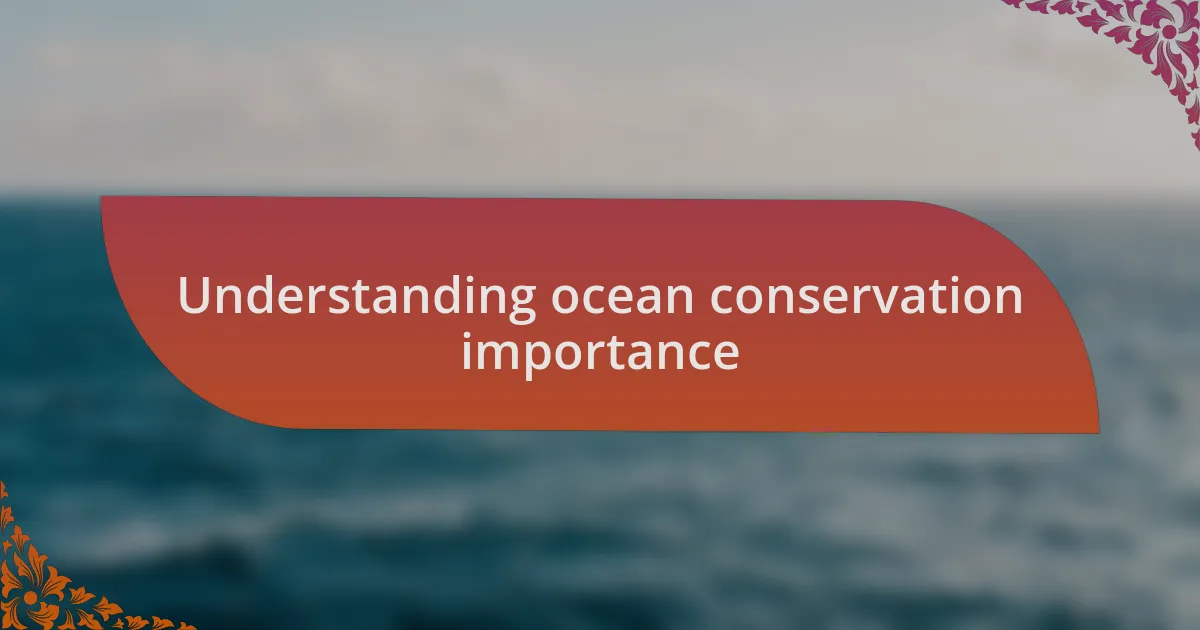
Understanding ocean conservation importance
The importance of ocean conservation cannot be overstated. I remember standing on a beach once, listening to the waves crash and watching dolphins play in the distance. In that moment, I felt a deep connection to the ocean and realized it’s not just a vast expanse of water; it’s a complex ecosystem that sustains countless lives, including ours. How can we ignore the pulse of life that beats beneath those waves?
Consider the food we eat and the air we breathe; the ocean plays a critical role in both. I recall a conversation I had with a marine biologist who explained how healthy ocean ecosystems contribute to biodiversity and climate regulation. It’s staggering to think that ocean health directly influences our well-being and that of future generations. Don’t we owe it to our children to protect this irreplaceable resource?
Moreover, I often reflect on how every small action we take can lead to significant changes. I’ve seen community-driven initiatives flourish, whether it’s beach clean-ups or advocating for sustainable fishing practices. These efforts highlight that ocean conservation isn’t just a scientific pursuit; it’s a heartfelt commitment to preserving the life force of our planet. How can we not participate in something so vital?
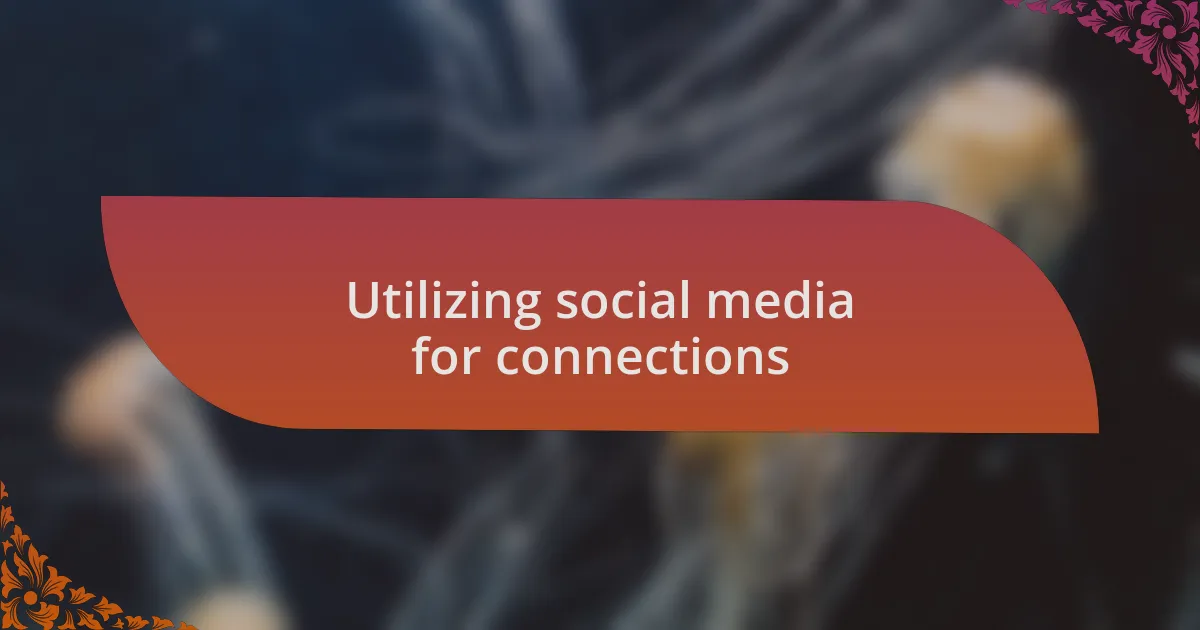
Utilizing social media for connections
Connecting with marine researchers through social media has transformed the way I engage with ocean conservation. I remember stumbling across a Twitter thread discussing an exciting new study on coral reef restoration. It was like opening a window into a world filled with passionate voices—experts sharing their findings and the challenges they face. How refreshing is it to see that enthusiasm shared in real time?
Platforms like Instagram and LinkedIn allow me to follow marine scientists and conservationists, giving me insights that often don’t make it into mainstream media. I once reached out to a marine ecologist on Instagram after being inspired by their posts on sea turtle conservation. To my surprise, they responded, inviting me to attend a live Q&A session. That personal touch not only deepened my understanding but also made me feel like part of a larger community fighting for a common cause.
The power of social media lies in its ability to create connections that might never happen in a traditional setting. Every time I engage with a post, I feel a sense of solidarity with others who care about the ocean. Isn’t it amazing how these platforms can bridge gaps, making the world of marine research accessible and inviting? It reminds me that while I may be just one individual, I’m part of a collective effort to safeguard our oceans.
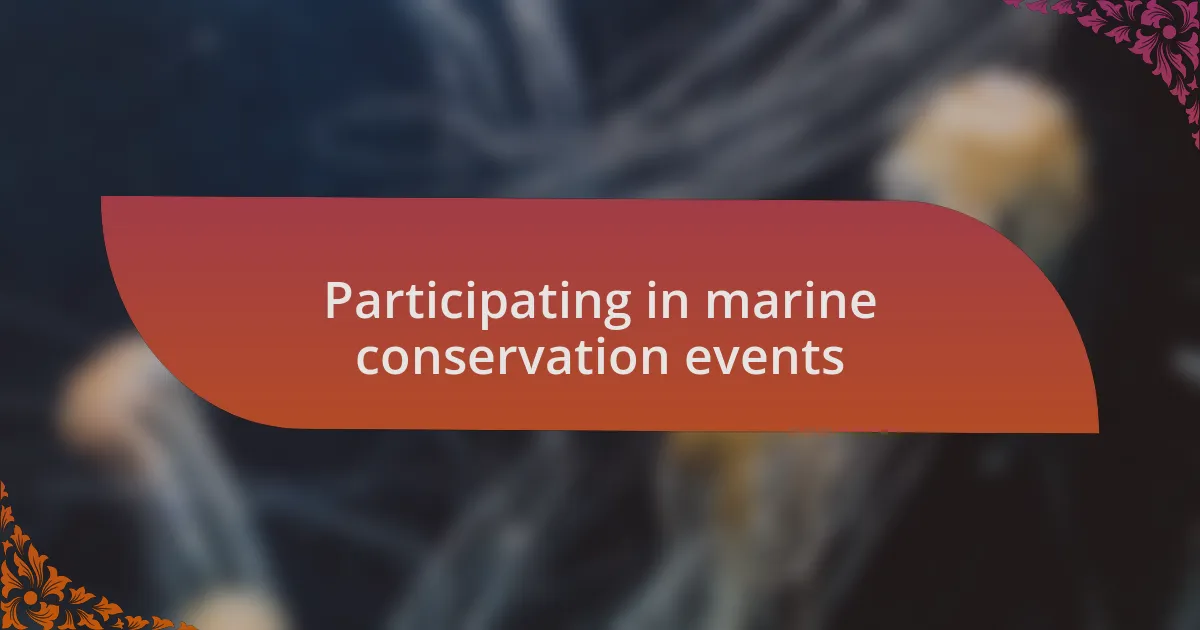
Participating in marine conservation events
Participating in marine conservation events has been one of the most fulfilling experiences for me. I remember attending a beach cleanup where volunteers came together from all walks of life. The energy was palpable as we picked up litter that had a devastating impact on marine life. It made me realize that we aren’t just cleaning the beach; we are standing up for the creatures that call the ocean home.
I once joined a local seminar organized by marine researchers, and it was eye-opening. Listening to experts share their firsthand accounts of coral bleaching and overfishing left me feeling both hopeful and concerned. Have you ever felt a sense of urgency to take action after learning something new? The discussions sparked a flame in me, urging me to not only participate but to also inspire others in my circle to protect our oceans.
What I cherish most about these events is the community they foster. When I participated in a marine biodiversity workshop, I met individuals who shared their personal stories about why they care about the ocean. These connections transcended simple networking; they created friendships rooted in a shared passion for conservation. Are we not stronger together when we unite for a cause that affects us all?
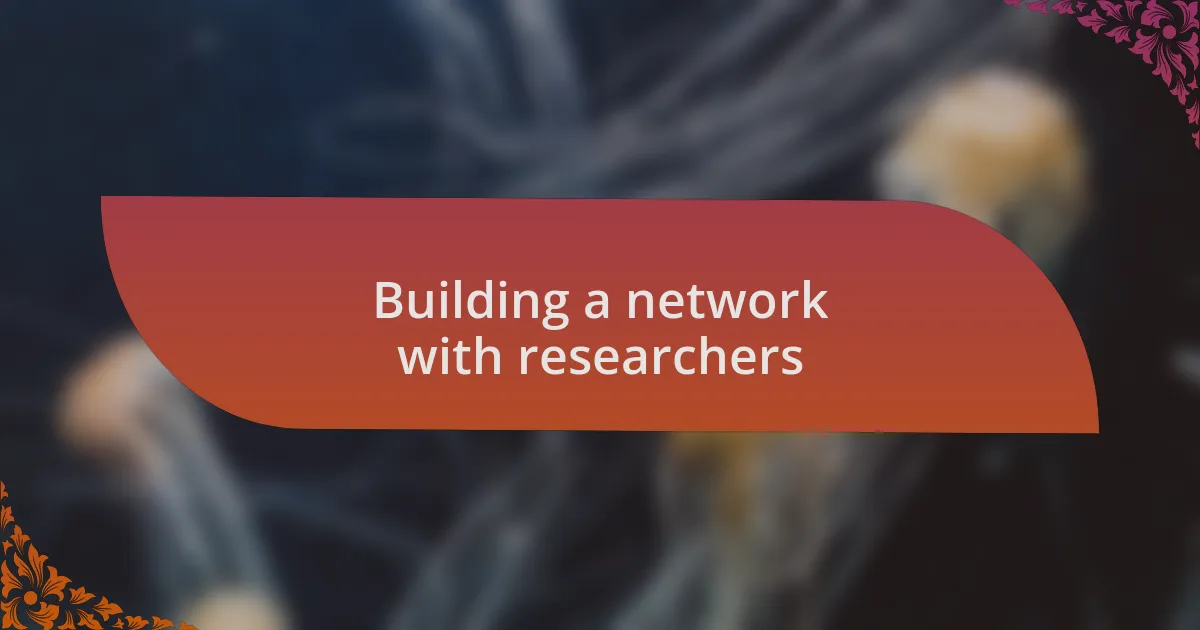
Building a network with researchers
Building a network with researchers opens up a world of opportunities for collaboration and learning. I remember a time when I reached out to a researcher specializing in marine ecosystems after a presentation I attended. I was amazed by how responsive they were; we exchanged ideas and eventually collaborated on a community awareness campaign. Have you ever felt that electric moment when a simple connection leads to something impactful?
Engaging with marine researchers doesn’t always have to be formal. I’ve found that casual conversations can spark incredible insights. One evening at a beach bonfire, I started chatting with a researcher about their latest findings on marine pollution. By the end of the night, we had not only shared knowledge, but also enthusiasm to protect the oceans. Moments like these remind me that building a network can be as simple as being open and curious.
The importance of a solid network cannot be overstated. I recently attended a panel discussion where marine scientists shared their research challenges. This experience emphasized how support from a network can guide young researchers or enthusiasts like myself. It raised a question I often ponder: how can we be effective advocates for our oceans without connecting with those who study them?
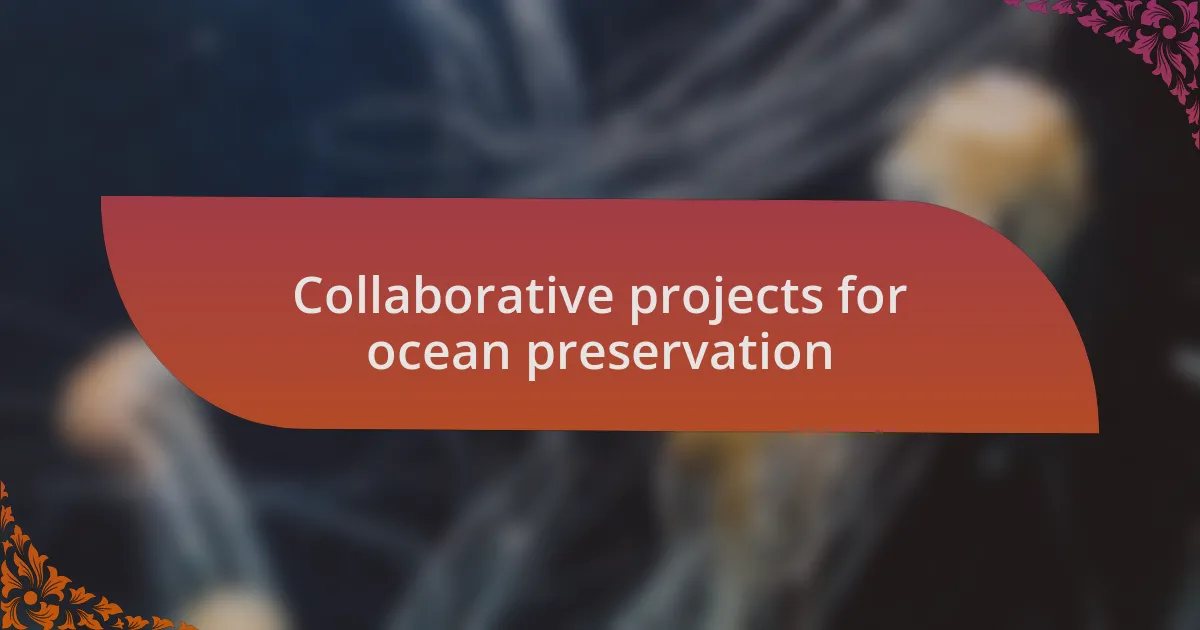
Collaborative projects for ocean preservation
Collaborative projects for ocean preservation take many forms, often fueled by a shared passion for marine ecosystems. I recall joining an initiative where local researchers teamed up with fishermen to create sustainable fishing practices. The process was eye-opening; we learned to respect each other’s knowledge and became advocates for the very waters we depended on. Have you ever thought about how diverse backgrounds can strengthen our approach to conservation?
In another instance, I participated in a citizen science project that involved monitoring coral reef health alongside marine biologists. It was both thrilling and humbling to contribute, even in a small way, to research that could impact larger environmental policies. This experience made me realize that everyone has something valuable to offer. How often do we truly consider our unique perspectives on such issues?
Working collaboratively not only enhances research but also builds a sense of community among those dedicated to ocean conservation. One memorable project saw community members coming together to clean up a beach while scientists collected data on the debris. I was struck by the palpable energy that day; it felt like we were all part of something larger than ourselves. It led me to wonder, how can we keep that momentum going in our efforts to protect the ocean?